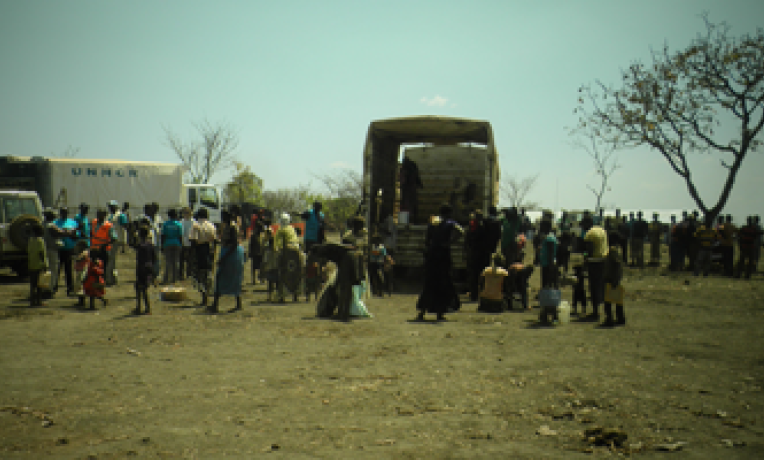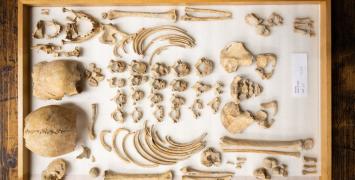What kind of support is needed for unaccompanied refugee minors?
Almost 30 million children across the world are currently forcibly displaced and many of them, the unaccompanied refugee minors, are travelling without the protection and support of parents or caregivers. What do we know about the impact of their often harsh experiences on their psychological wellbeing? Dr llse Derluyn aims to gather evidence that will support the development of policies and clinical and social interventions for these unaccompanied children who face multiple traumas, also in a view to facilitate their integration in the host countries.

While thousands of refugees are searching for a safer and better life in Europe, children who flee unaccompanied are among the most vulnerable. As they reach their destinations, they are more prone to suffer from psychological troubles such as post-traumatic stress, depression, anxiety, substance use and aggressive behaviour.
So far, most studies have focused on the impact of traumatic events experienced in the war-torn countries of origin. Only recently have researchers started to investigate the effect of stressors in settlement countries, such as life in refugee centres, limited housing facilities, racism, and inadequate professional support. In addition, we know little on the impact of the difficulties experienced on the move, including abuse by smugglers and authorities, hard living conditions in transit camps and detention centres, life-threatening events. Overall, there is a general lack of longitudinal studies on how their mental health and its risk factors evolve over time.
Recent research carried out by Dr Ilse Derluyn revealed that more than the type of trauma, it is the number of traumatizing events that affect the emotional and psychological wellbeing of these unaccompanied children. In her project, recently funded by the ERC, Dr Derluyn intends to provide scientific evidence to support these initial findings and better understand the factors leading to the ‘cumulative trauma’.
Her team will conduct fieldwork in four countries in order to document the complexity and diversity of flight experiences: Greece and Italy, the first entrance and transit countries of the European Union; Libya, the last country many refugees go through before they attempt to enter the EU; and Belgium, both a transit (particularly to the UK) and a settlement country. The researchers will follow 300 minors over 14 years old (a group of 100 in each country; the participants in the Libyan study will only be assessed once), over a period of two to three years, combining methods of participant observation, in-depth interviews, questionnaires and visual ethnography.
At the end of the project, the team will present their results during two ‘implementation workshops’ involving in the discussion key policy makers and practitioners from different countries and organizations such as the European Commission Migration and Home Affairs Department, EU members States’ migration authorities, UNHCR, IOM, various NGOs. The aim of these workshops is to understand the implications of their findings for policy, clinical, educational and social work and to suggest timely interventions for these unaccompanied refugee minors victims of multiple trauma.
Ilse Derluyn teaches different courses on migration and refugee health at Ghent University. She is the head of the Centre for the Social Study of Migration and Refugees (CESSMIR) and co-director of the Centre for Children in Vulnerable Situations (CCVS) of Ghent University. Her main research topics concern the psychosocial wellbeing of unaccompanied refugee minors, migrant and refugee children, war-affected children, victims of trafficking and child soldiers. She is also actively involved in supporting refugees and practitioners working with refugees and migrants, in policy research and policy-influence.




